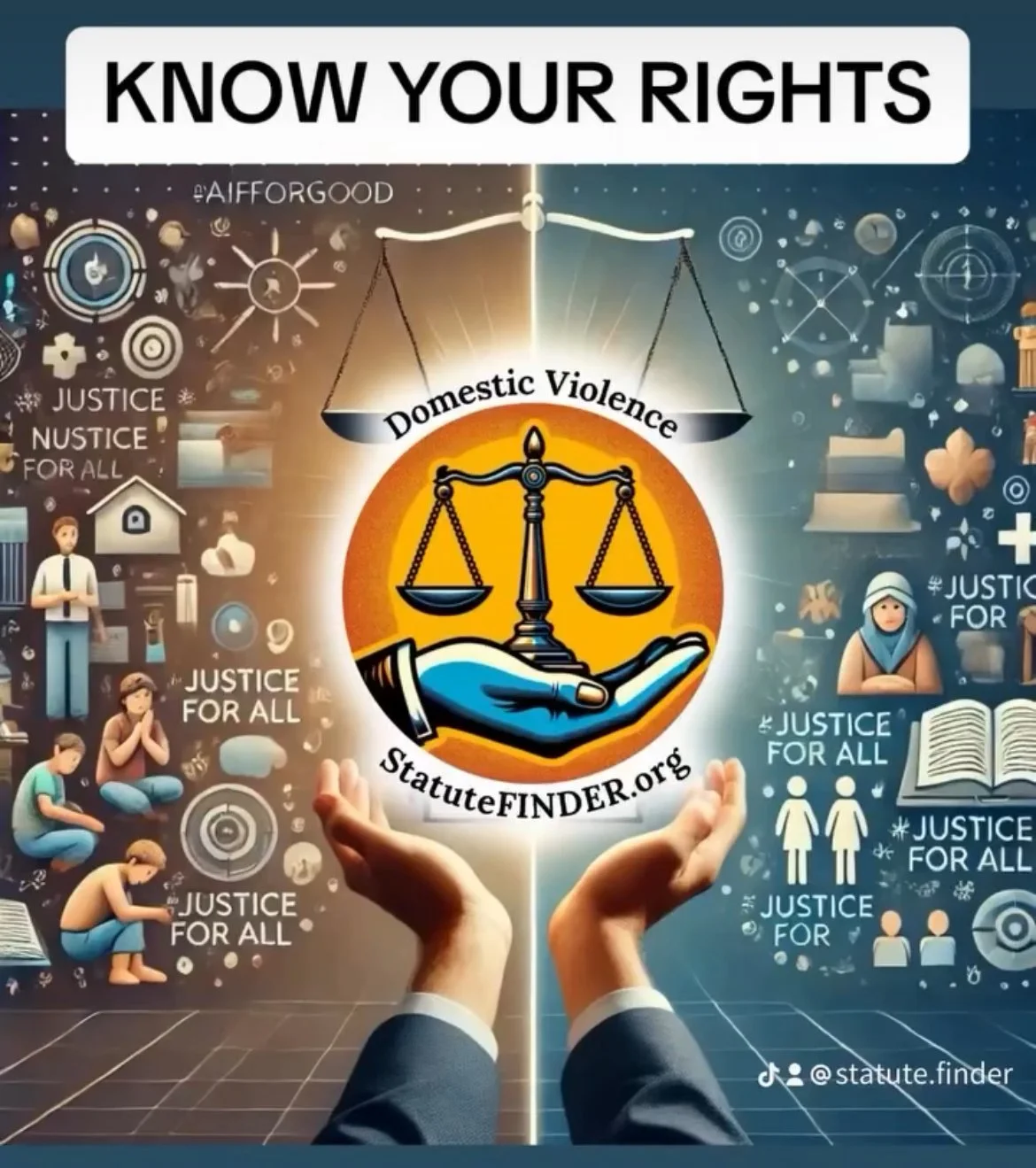What Is Due Process? And Why Should Domestic Violence Victims Care?
Victims have legal rights. The system has rules to protect them. StatuteFINDER connects the dots—instantly, so you don’t get caught in the minutiae.
As of September 28, 2025.
Introduction
We hear a lot on television, social media platforms, and even on the news about our rights, but we are not familiar with how our rights are protected. Due process is a significant legal concept that provides structure in the U.S. Constitution.
Without due process, people would be deprived of fair treatment, and the government would have no consequences for abusing its authority by making unwarranted arrests, imprisonments, and/or seizing valuables and possessions without proper legal procedure. Due process keeps the government in check to ensure they are following proper legal rules.
So, What Is Due Process?
Due process is a legal concept that requires the government to follow procedures regarding your property, freedom, or liberty. The Fifth and Fourteenth Amendments of the U.S. Constitution make sure justice is upheld to prevent situations where you are being punished without first having the ability to be heard and/or defend yourself.
There are two types of Due Process:
1) Substantive Due Process: Limits the government's ability to interfere with U.S. citizens’ fundamental rights, such as the right to privacy and freedom of speech.
2) Procedural Due Process: Guarantees that court system procedures are fair. This includes an opportunity to be heard, providing notice, and a decision by a neutral party.
Why Should Victims of Domestic Violence Care?
Picture this: you are being accused of something you didn’t do, and unexpectedly, you’re fired from your job or even arrested without the ability to present your case. Due process is what will protect you from unjust treatment.
It is crucial for young people and individuals from minority backgrounds who are often more vulnerable to mistreatment or bias in legal and school systems to understand due process in order to protect themselves from legal trouble.
How StatuteFINDER Can Help:
Although understanding your rights can be confusing, the use of technology makes the learning process easier for beginners. StatuteFINDER is a free app designed to guide people through the legal system by matching the relevant laws (statutes) based on their situation. Whether you’re facing legal troubles or want to expand your knowledge of the law, StatuteFINDER can connect you to the legal information that applies to you.
It helps you:
Find laws that protect your rights
Understand due process in your state
Guides you through the steps if you’ve been mistreated
Improve your domestic violence situation by giving you the power of the law
Final Thought:
Don’t think of due process as just another complex legal term; it is critical knowledge that everyone needs to be familiar with. Understanding your rights and taking advantage of your resources can be a game-changer for people struggling to find the help they need.
StatuteFINDER can fulfill your need for guidance. Any situation, whether you’ve been sentenced to lengthy imprisonment without a fair trial, wrongfully evicted from your house, or falsely accused for domestic violence. Enter it into the the free StatuteFINDER app, and it will direct you to relevant laws or a step-by-step guide on how to legally deal with the situation. (Not legal advice)
StatuteFINDER empowers users, such as yourself, to stand up and fight for your rights. Being knowledgeable about due process could be your best ally.
How to Use StatuteFINDER
If you want to learn more about StatuteFINDER or how to use the StatuteFINDER app, click the video below:
Guest Author: Brenda Gallello
Brenda Gallello is a passionate law student pursuing her passion in criminal and civil law. She actively participates in debates, volunteers in a political campaign, and aspires to learn more about criminology and psychology.
Works Cited
Cornell Law School. “14th Amendment.” Legal Information Institute, Cornell Law School, 17 May 2018, www.law.cornell.edu/constitution/amendmentxiv. Accessed 11 May 2025.
---. “Fifth Amendment.” LII / Legal Information Institute, 10 Oct. 2017, www.law.cornell.edu/constitution/fifth_amendment. Accessed 10 May 2025.
Strauss, Peter. “Due Process.” Legal Information Institute, Cornell Law School, 2022, www.law.cornell.edu/wex/due_process. Accessed 11 May 2025.



